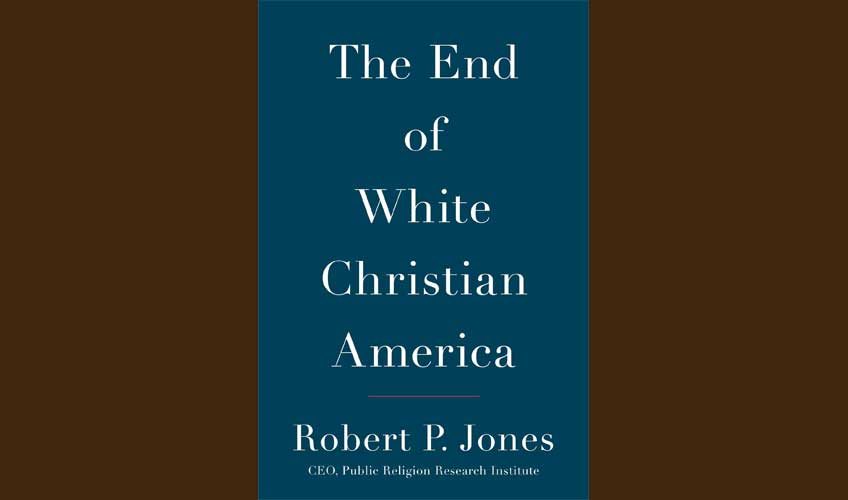You’re not imagining things: America isn’t like it used to be. Coming to grips with this massive societal shift is the focus of The End of White Christian America, by Robert P. Jones.
By “White Christian America,” Jones is referring to the cultural dominance of white Protestants in this nation’s history. As he noted in an Aug. 31 PBS NewsHour interview: “If you were in charge of something big and important in the middle of the 20th century, chances are you were white, you were Protestant, and you were male.”
While “Christian” might seem like the wrong word if he’s referring primarily to Protestants, Jones points out that for much of the 20th century Christian and Protestant were virtually the same.
As he traces the history of mainline and evangelical Protestantism, he’s intentional about calling them the two “survivors” of White Christian America: He begins the book with an obituary for White Christian America and ends it with a eulogy. Using extensive polling data (he’s CEO and founder of the Public Religion Research Institute), Jones demonstrates how the dominance has ended and how nostalgia and grief for the past are affecting America today.
In one chart, Jones compares responses to this question: “Since the 1950s, do you think American culture and way of life has mostly changed for the better, or has it mostly changed for the worse?” The responses sort people dramatically by religion and race. Americans as a whole check in close to the middle, with 46 percent saying American culture has changed for the better. People of color (groups such as blacks, Hispanics, Hispanic Catholics, and black Protestants) all say it has gotten better, and white groups say that it has gotten worse. The most positive response, at 63 percent, is from the religiously unaffiliated. The most negative response, at 27 percent, is white evangelical Protestants.
Jones spends an entire chapter on each of two topics that divide Americans—same-sex marriage and race. In the first, he tracks the rapid change in opinion on same-sex marriage in general across the country and specifically within religious groups. “By 2014,” he observes, “battle lines on the issue of same-sex marriage were no longer between religious and nonreligious Americans. Rather, debate was raging among religious groups” (126-127).
In his chapter on race, Jones shows the gulf between the way blacks and whites view police violence against African Americans. Blacks generally see these events as part of a pattern of racial injustice; whites tend to see them as isolated events. This “racial perception gap” has been around for decades, says Jones. “The racial perception gap highlights one of the most powerful—but also least discussed— divisions between Americans on the topic of race: the rift between the descendants of White Christian America and the rest of the country” (155).
What does all this mean for Brethren? We may have begun as a people outside the power structures of the day, but today we are among the heirs of White Christian America. Institutionally we have identified with mainline Protestantism, though in many other ways we have also been influenced by evangelicalism. Jones offers much for us to study and ponder.
In his closing eulogy, Jones uses the Kübler-Ross stages of grief as a model for what white Christians are facing. He systematically describes how both mainline and evangelical white Christians have been making their way through denial, anger, bargaining, depression, and (for some) acceptance.
“What I hope I’m doing at the end,” says Jones in his NewsHour interview, “is thinking about presiding over this very complicated loss and death in American culture, with some people who are grieving, but some people who are very much ready to move on and ready to say good riddance to this era.
“But I think the real challenge for us is to figure out how we tell a story about who America is and where we’re going as a country that is faithful to its past, but makes room for the new demographics and the new place that the country is going.”
Wendy McFadden is publisher of Brethren Press and Communications for the Church of the Brethren.


